Reports and publications from MCAP's work can be found below. Use the filters to search publications by author, year published, or project.

High-Resolution Climate Projections Over Minnesota for the 21st Century
Minnesota is the state with the strongest winter warming in the contiguous United States. We performed regional projections of the climate across Minnesota for the middle and end of the 21st century. We selected the results from eight recent global climate model projections to calculate climate data over an area of 10 km by 10 km with a regional climate model. Our results indicate that the future climate for the state of Minnesota is likely to be significantly different from what has been observed near the end of the 20th century. Over northern and central Minnesota, winters and summers are expected to be up to 6 and 4°C warmer, respectively, near the end of the 21st century. Spring precipitation may increase by more than 1 mm d−1 over northern Minnesota. Over the central part of the state, winter snow depth is suggested to decrease by more than 12 cm. The number of days per year with snow depth of more than 2.54 cm (one inch) is expected to decrease by up to 55. These results are expected to influence regional decision-making related to agriculture, infrastructure, water resources, and other sectors.
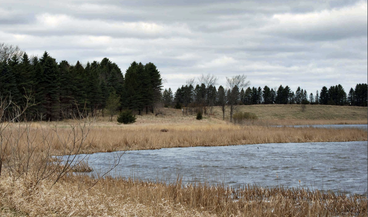
Climate Change Impacts on Minnesota Agriculture
MCAP partnered with the USDA's Midwest Climate Hub, the Great Lakes Integrated Sciences and Assessments, the Northern Forests Climate Hub, and the Northern Institute of Applied Climate Science to develop an agricultural vulnerability assessment for Minnesota. This report includes historical climate change information from 1979 to 2021, projected changes under future greenhouse gas emissions scenarios, impacts of these changes (both historical and projected) on agricultural operations, and considerations for adapting agricultural operations to these impacts. The climate metrics presented in these assessments include temperature, precipitation, humidity, and their extremes.
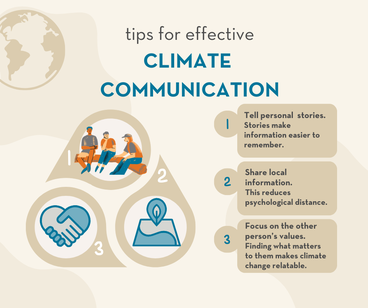
A Community-Based Approach to Climate Science Communication: Results From a Pilot Climate Extension Program
More frequent, effective climate conversations initiated by a diversity of trusted voices can help to increase climate concern and desire for action at the community level. However, in the United States, there is a disconnect between the level of concern individuals have about climate change and the extent to which individuals talk about the issue. To help bridge this gap, the University of Minnesota Climate Adaptation Partnership developed a training program aimed at inspiring and equipping local community members across Greater Minnesota with the skills and confidence to have effective conversations about climate change in their communities. This paper summarizes the programmatic activities we used to support our goals, and some reflections on the program's results. This pilot program provides a framework for future efforts that can be facilitated by Extension programs, community-based organizations, universities, and others to inspire and accelerate similar community-centered climate conversations.
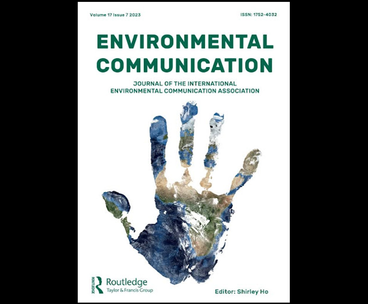
The Worth of Nature: Valuations of Glaciers in Alaskan and Norwegian Media Discourse
This article presents a comparative case study of public valuation of glaciers in Alaska and Norway. The first case examines Alaska’s Mendenhall Glacier, which has been central in public debate over the US Forest Service’s proposed expansion of the Mendenhall Glacier Recreation Area. The second case centers on Norway’s Svartisen glacier, which garnered international attention when the startup company, Svaice, announced its intent to extract glacier ice cubes for cocktail coolers at high-end bars and restaurants. A rhetorical analysis of newspaper coverage relevant to each case reveals that in both debates, instrumental, relational, and intrinsic values are attributed to the respective glaciers, and that government, business, and community actors hold the most power in these conversations. However, nuances within articulations of instrumental value suggest that Norwegian actors strive to balance human and glacier needs, whereas Alaskan actors largely prioritize human needs by constituting the glacier as a utilitarian object.
Please contact Catherine Bruns for a copy of this publication.
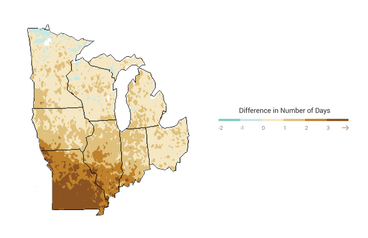
Climate change and drought in Minnesota and the Midwest
This document is intended to provide a brief overview of observed and projected changes to precipitation in Minnesota. Minnesota has become wetter on average over the past 120 years, and that trend is expected to continue, but climate change will likely make precipitation in Minnesota more unstable and intense. Between heavy rain events, Minnesota will likely have longer dry periods and more flash droughts. Transitions between very wet and very dry periods are also likely to accelerate.
Use this summary to learn more about the details of the projections and the potential impacts these changes could have on Minnesotans.
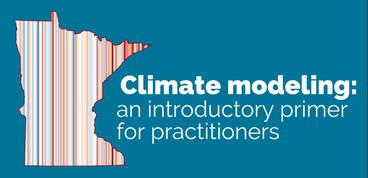
Climate Modeling: An Introductory Primer for Practitioners
This document is intended to provide an introductory overview to climate models and their function. It explains the basics of how a climate model works, how data can be transformed from a global to a regional scale, and the constraints placed on modeling as a result of computational power. It also explains the Coupled Model Intercomparison Project (CMIP) and modeling scenarios established by CMIP. It is not an exhaustive overview, nor is it intended to replace a formal modeling course for those wishing to run climate models. The intended audience includes those who would like to understand or are interested in using model output.
This product is part of the Agricultural Weather Study funded by the Minnesota State Department of Commerce.
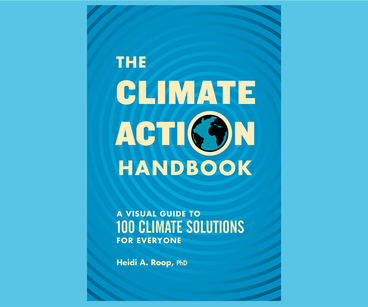
The Climate Action Handbook
This handbook, by MCAP Director Dr. Heidi Roop, explains why we need to take action now to combat climate change and offers 100 varied and doable solutions. A visually stunning guide, it does what no other climate change book manages to do: it's approachable, digestible, and offers the average person ideas, options, and a roadmap for action. It also offers hope—often overlooked in climate change conversations. Climate actions can create near-instantaneous improvements in air quality and can offer ways to address societal inequities, green our communities, save money, and build local economies.
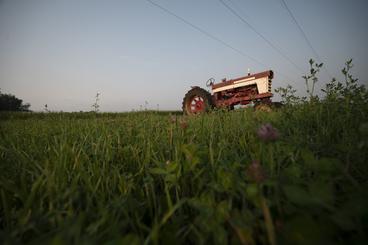
Assessing stakeholder climate data needs for farm-level decision-making in the U.S. Corn Belt
This study investigated climate information needs and priorities of stakeholders in the U.S. Corn Belt. Results reveal that stakeholders are primarily concerned with practical and tactical decision making to inform agricultural, water, and risk management and to support desired economic outcomes. The study can be used to inform development of decision support tools that respond to these information needs and present data in a meaningful and accessible way.
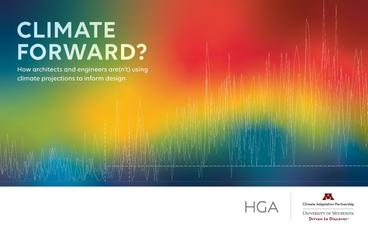
Climate Forward: How Climate Projections Are(n’t) Used to Inform Design
In this study, the University of Minnesota Climate Adaptation Partnership (MCAP) and HGA characterize the climate projection data needs of Architecture and Engineering (A&E) professionals in the United States; challenges they encounter accessing, understanding, and applying these data; and opportunities to advance A&E climate resilience services and expertise.